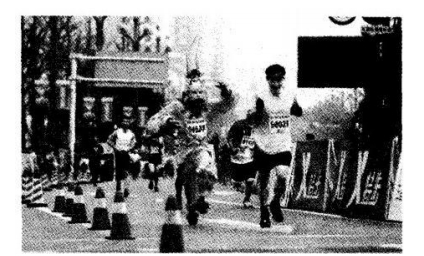
Published 10-01-2025
Keywords
- Marathon,
- Show-offs,
- Self-presentation,
- Goffman's Dramaturgy Theory
Copyright (c) 2025 Cambridge Sport Science

This work is licensed under a Creative Commons Attribution-NonCommercial 4.0 International License.
How to Cite
Abstract
In recent years, marathon events in China have experienced explosive growth, but numerous issues have also arisen during the organization of these events. The term "marathon show-offs," borrowed from internet slang, is used by the author to describe participants who, driven by a mentality of blind conformity and self-aggrandizement, engage in marathon races to showcase themselves in a "unique" manner ("appearance" and "behavior") on the marathon course. Employing documentary research and logical analysis methods from the perspective of Goffman's "Dramaturgy Theory," the author attempts to interpret the problems emerging in the nationwide "marathon craze" from the viewpoint of participants who are "showing off" their marathon participation. The conclusion reached is that many characteristics of the marathon course align with the display platform of "show-offs"; during the competition, the excessive flaunting and self-presentation by "show-offs" neglect the essence of marathon racing. It is worth reflecting that a significant number of marathon participants with a "show-off" mentality have, to a certain extent, contributed to many of the problems encountered in the process of marathon competitions.
References
- China Athletics Association Official Website [EB/OL]. http://www.athletics.org.cn/.
- National Language Resources Monitoring and Research Center. China Language Life Green Book: Report on the State of China's Language Life (2006) [M]. Beijing: The Commercial Press, 2007.
- Yu Jianhua. A Psychological Perspective on Internet Sociology [J]. China Youth Studies, 2007 (7): 69-71.
- Xu Xiaobo. A Psychological Analysis of the "Show-off" Phenomenon in College Campuses [J]. Journal of Qiqihar University (Philosophy and Social Science Edition), 2012 (1): 68-71.
- Han Xiaodan, Dai Shifu. A Communication Psychology Interpretation of Online "Show" Behavior [J]. News World, 2014 (10): 129-131.
- (US) Erving Goffman. The Presentation of Self in Everyday Life [M]. Translated by Feng Gang. Beijing: Peking University Press, 2008.
- Yu Ping. A Study on the Self-Presentation of Internet "Show-offs" from the Perspective of "Front Stage" and "Back Stage" [D]. Shanghai: East China Normal University, 2009.
- Tang Meng yuan. An Analysis of the Dynamics of Stadium Violence from the Perspective of Goffman's Dramaturgy Theory [J]. Journal of Chongqing Technology and Business University (Natural Science Edition), 2013 (12): 91-96.
- Meng Cai'e. A Study on the Fit and Optimization Path of Marathon and Urban Culture [J]. Sports Science Research, 2015 (5): 48-51.
- Ma Yihua. Do Fitness Needs to Be Shown? [N]. China Sports Daily, 2015-11-23 (04).
- Duan Hai jun. An Analysis of the Operational Characteristics of Lanzhou International Marathon [D]. Lanzhou: Northwest Normal University, 2013.
- Jin Yinghua, Yuan Yu Jie. An Analysis of the Social and Economic Benefits of Beijing International Marathon [J]. Journal of Beijing Sport University, 2008 (11): 1446-1447.
- Wei Xia, Zhang Junbin. An Analysis of the Development of Urban Marathons in China [J]. Sports Culture Guide, 2014 (1): 17-19.
